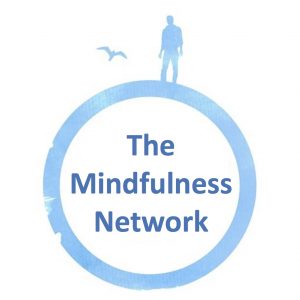
~ Written by Bridgette O’Neill, Retreat and Compassion Lead for the Mindfulness Network ~
Practising mindfulness meditation was a mixed bag for me early on. I was drawn to a sense of ease and joy in life that I saw in the teacher who led the first meditation weekend I attended and I loved the increased vividness and aliveness that I experienced that weekend. I wanted more of this and so set about beginning to practice regularly, taking my time, as most of us do, to establish a daily practice. Along the way there were aches and pains, boredom and restlessness and self-conscious struggles around the breath but also times of deep relaxation, moments of peace, insight and a lot of enjoyment. Then about six months in, I hit overwhelm.
I had begun practising fairly soon after my dad’s death and I found myself feeling overwhelmed by somewhat complicated grief experiences. Practice sessions were often overtaken by a tumult of emotions and I began to feel that I couldn’t do it. Thankfully I had a meditation instructor at the time; someone I could speak to individually about practice. I described what was happening and they suggested that I try a practice known as tonglen (giving and taking) from the Tibetan meditation tradition. Simply described, this practise begins with connecting to a sense of space and steadiness through the posture and involves breathing in the texture and feel of the struggle. Followed by breathing out the texture and feel of some relief or ease, beginning with my struggle and then gradually expanding to include others who may also be struggling in similar ways. Sandwiched in between simple mindfulness of breathing, tonglen practice gave me a way of being with my struggles just one inbreath at a time and of connecting to my motivation to relieve struggle, mine and others, one outbreath at a time in an everchanging flow. It also connected me to everyone else who may be struggling or had struggled in similar ways, offering more space and a bigger perspective within which my struggles could be held.
This openness to difficulty – with a motivation to reduce or prevent it – is compassion; the bigger perspective and greater sense of space connect to equanimity. Compassion and equanimity are two of four inter-connected qualities central to mindfulness based programmes (MBPs). The other two are friendliness and joy. These qualities are implicitly woven through MBPs in the experience of and attitudinal qualities built into the practices and within the MBP teacher’s presence. Whilst these qualities are natural capacities within us, they can also be deliberately developed so that they are more readily available to us. Practices intended to cultivate these qualities, which include tonglen, have been part of Buddhist teachings for centuries and, in the last couple of decades, a number of programmes that offer an explicit training in these four qualities have been developed. These programmes are known as compassion based interventions (CBIs) and have been shown to enhance psychological wellbeing and empathic concern for others (Brito-Pons et al, 2018). These programmes include Mindful Self Compassion (MSC) and Mindfulness Based Compassionate Living (MBCL). Within MBCL, friendliness, compassion, joy and equanimity are known as the four friends for life. I love this idea; four friends that I can deliberately hang out with and that support me through the different weather patterns of my life.
I find the practices offered in both MBCL and MSC so helpful alongside MBP practices. From the stability of mindfulness practice, deliberately inviting friendliness and practising compassion supports me to look more fully and with more kindness at vulnerabilities and sore spots that I carry within me from the past and that at times continue to cause me trouble in the present. All four friends, friendliness, compassion, joy and equanimity, offer resources in the midst of life’s difficulties and open me more and more to other people and to the joy and ease that I was drawn to on that first meditation weekend I attended. As I’ve become more familiar with mainstream compassion trainings, my teaching of MBSR and MBCT has naturally ‘warmed’ up and my understanding of stress reactivity and the tangles of being human has deepened. As I reflect now on the term ‘four friends for life’, I have the sense not only of the enduring nature of their availability but also of their life-giving quality and potential in the challenging times we are currently living in.
If you are interested in exploring this topic further, please register for our upcoming Community Friends event:
Four Friends for Life – free online workshop with Frits Koster
When: 9 Mar 2022, 6.30 – 8pm (UK Time)
Where: Online Event
Tutor: Frits Koster
Register: https://booking.mindfulness-network.org/course-information/?id=875
We also have a freely available online recording of Frits Koster’s previous workshop, which introduces the breathing practice known as Tonglen-light.
We welcome all donations and encourage you to consider a contribution, large or small, which will make a big difference in helping us widen access to mindfulness-based approaches.
You can view and book all of our Compassion courses and retreats via the Mindfulness Network CALENDAR.
Brito-Pons, G., Campos, D., & Cebolla, A. (2018). Implicit or explicit compassion? Effects of compassion cultivation training and comparison with mindfulness-based stress reduction. Mindfulness, 9(5), 1494-1508.




